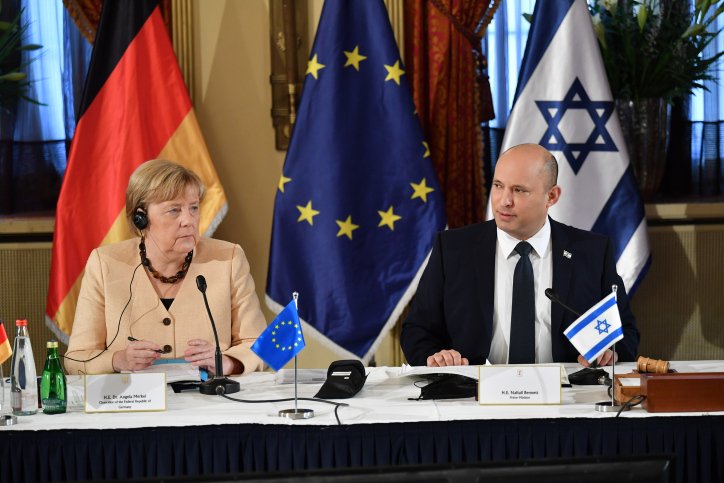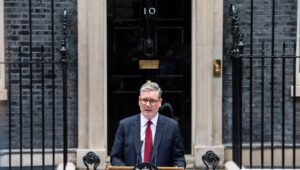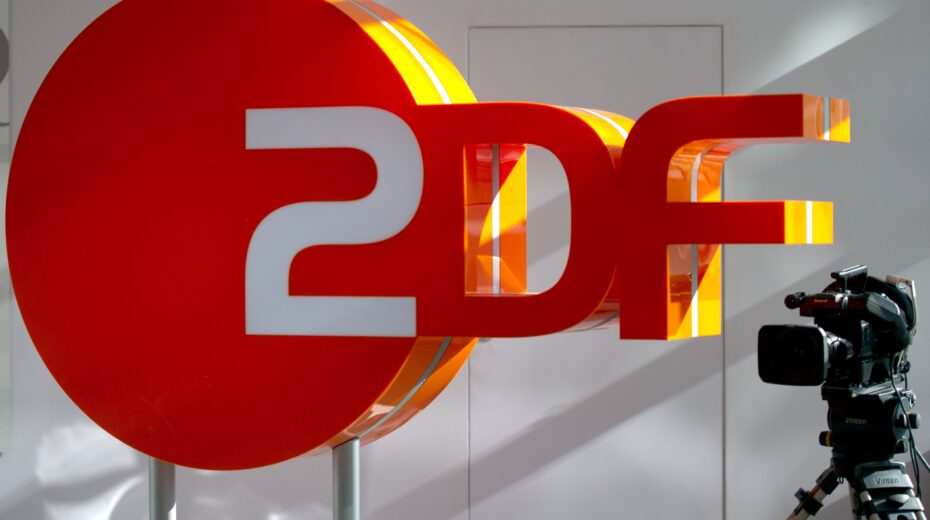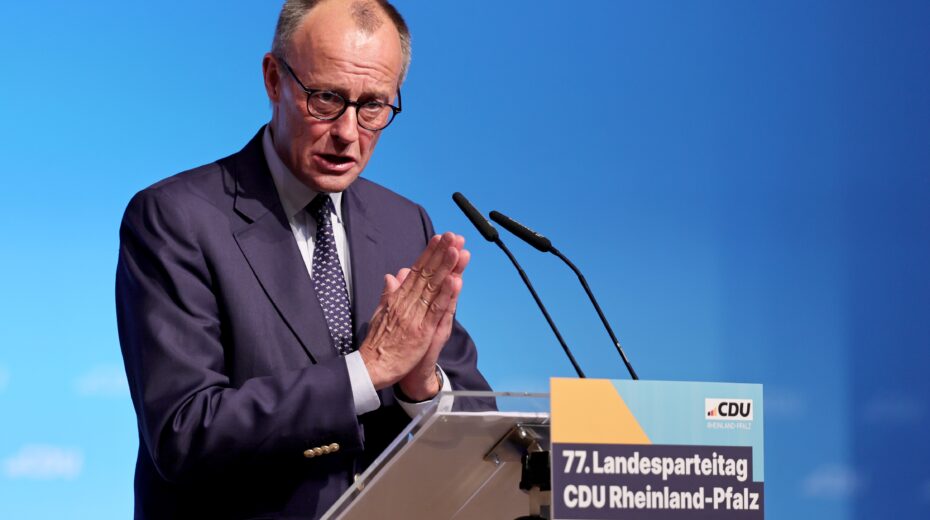Outgoing German Chancellor Angela Merkel spoke at a meeting with researchers at the Institute for National Security Studies (INSS) before leaving the country at the end of her farewell visit to Israel.
With regard to Iran, she said: “I don’t think we have different opinions about the nuclear deal after we negotiated as to whether it improves the situation or doesn’t contribute and doesn’t prevent a nuclear Iran. I have always supported the agreement even though I knew its weaknesses because I believed and still believe that it is a preliminary achievement and a framework that can be expanded. However, the negotiators have not been unanimous for years, and the country that suffers the most from Iran’s aggression is Israel. We have a common position – we need to prevent Iran from reaching a nuclear capability. We’re in a very critical place, I’m saying this for all to hear, and we need to keep working on that. Yesterday, I spoke to the Prime Minister of Israel and told him that there were other dimensions, such as Iran’s arms program and the missile and drone program. So far, we have not been able to curb Iran’s regional ambitions. We need to talk to Russia because it is an important player in the region, as well as with Egypt and Jordan and other forces in the region. European countries, together with the United States, Russia and China, should prevent uranium enrichment. We need to integrate as many countries as possible into the Iran deal and try to contain Iran through cooperation.”
With regard to the Abraham Accords, Merkel said that they have changed the situation for the better: “There is still the question of what needs to be done for a Palestinian solution to make it possible for the Palestinians to live their lives.”
Addressing the Palestine issue, Merkel said: “The Palestinian issue will not go away in the long-term even if Israel’s relationship with its Arab neighbors is better. I support a Jewish democratic Israel, but the country needs to be protected in the region for the long term. And just as Israel has a right to a state of its own, Palestinians also have the right to determine their lives. We need to take into account the settlements that make it difficult to carry out a two-state solution for two peoples. The Israeli government is taking very interesting steps towards pragmatic solutions to improve the situation of life for Palestinians, and we on the European side will support this.”
The Middle East and the international arena: “We are in a very complex environment, the balance of power in the world is changing. The Americans have withdrawn from Afghanistan and we see that the United States is not so present at all in the world. It means, from the European perspective, that we need to define our security interest more and we need to coordinate it with the United States, define who’s doing what role in NATO, because just as your environment is complex and the distance to Europe is not great, we are looking at Europe’s external border and we are close to it, and therefore we have common security interests that we need to highlight in the coming years.”
With regard to Turkey, Merkel said that the Turkish government has great ambitions: “We have had a lot of disappointments concerning internal developments in Turkey, but Turkey should not be ignored. Turkey needs to be taken seriously. It’s part of NATO, it’s a very important strategic member of NATO, which is why we need to look for the connection. Next week I will make a farewell visit to Turkey.”
Regarding China, Merkel said: “We know that China is an increasingly important country, and I have seen the many economic ties between Israel and China, and at another opportunity we must really clarify the approach to China, the social situation, the economic strength and the security perceptions that need a separate discussion.”














